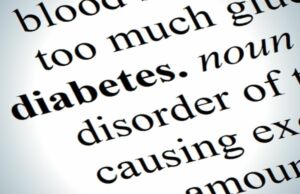News
Danish News Round-Up: More Danes have diabetes, but fewer die from it
This article is more than 5 years old.
Regions and municipalities to be compensated for Coronavirus Crisis costs

Diabetes is on the rise in Denmark (photo: Blue Diamond)
The number of people in Denmark with diabetes has risen sharply compared to 25 years ago, but fewer people die from the disease, a new study has found.
The study by the Steno Diabetes Center Copenhagen (SDCC) showed that 285,000 people have diabetes. Of this figure, 90 percent have type 2 diabetes, the most common form of the disease.
About 4.5 percent of the population, around 256,000 people, had type 2 diabetes in 2017 – almost quadruple the numbers for 1995 when only 1.2 percent of the population had the illness.
Lifestyle changes
While researchers cannot determine the exact cause of the spike, they said that lifestyle changes, an ageing population, and improved and earlier diagnostics were possible factors.
“We must expect that changes in our lifestyle mean a lot. We become less physically active and more develop obesity,” Marit Eika Jørgensen, a professor and chief doctor at SDCC, told TV2.
On the upside, the mortality rate has dropped, especially among people with type 2 diabetes, because of improvements in prevention.
More funds for municipalities in 2021
The government and municipality association KL have agreed on an additional 1.5 billion kroner in funding for municipalities next year in a bid to boost welfare after the Coronavirus Crisis. In a statement, the health minister, Magnus Heunicke, said that the money was meant particularly for aiding children, the elderly and unskilled workers. The government and municipalities also agreed to introduce smoking-free school hours for students.
Regions get compensation for COVID-19
The Danish regions will receive compensation from the government for the costs incurred in dealing with the Coronavirus Crisis. The Health Ministry said the total compensation package of 3.1 billion kroner will cover, for instance, the regions’ purchase of extra protective and medical equipment. The government and the regions also agreed to raise funding for 2021 by 1.3 billion kroner to allow the healthcare system to treat more elderly people. Surveillance of infectious diseases will also be strengthened to respond more effectively to disease outbreaks.
Booking boom in Jutland but Copenhagen bleeds
Jutland’s holiday homeowners are busy managing tourist bookings ahead of the reopening of borders on June 15, but the Copenhagen tourism industry expects even more bleeding. After PM Mette Frederiksen’s announcement last week on the partial lifting of travel restrictions, the websites of holiday homes in Jutland have seen an explosion of traffic from German and Danish tourists. But with foreigners barred from staying overnight in Copenhagen, Wonderful Copenhagen expects a bigger loss of revenue and 1,400 jobs affected.










































